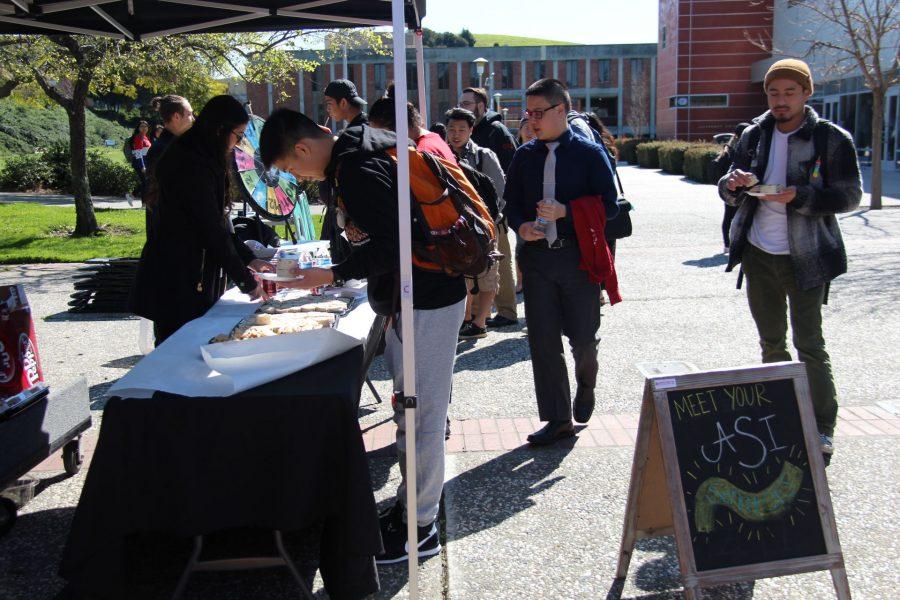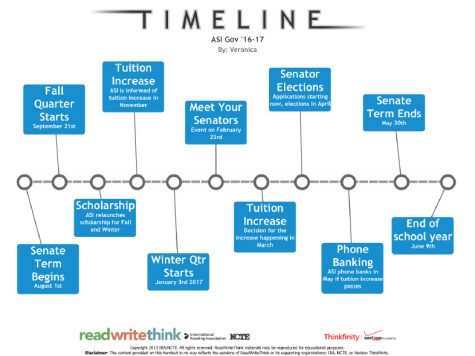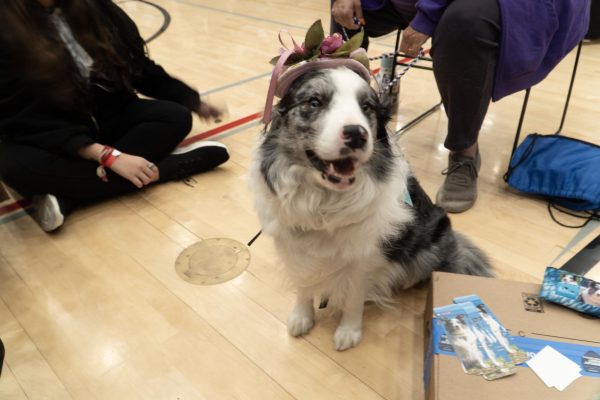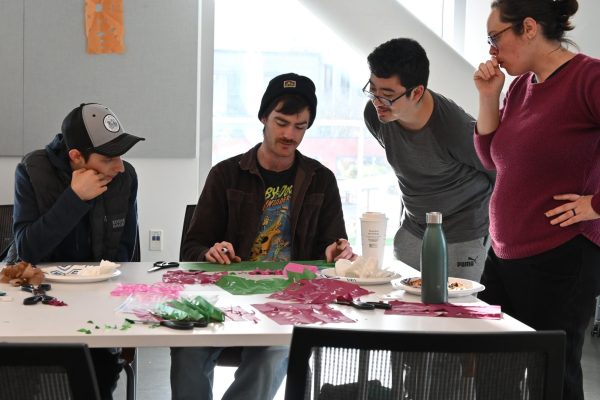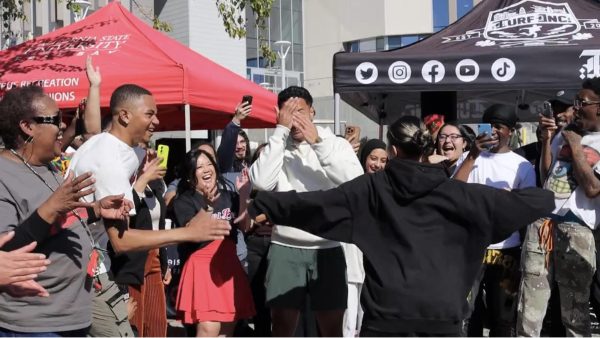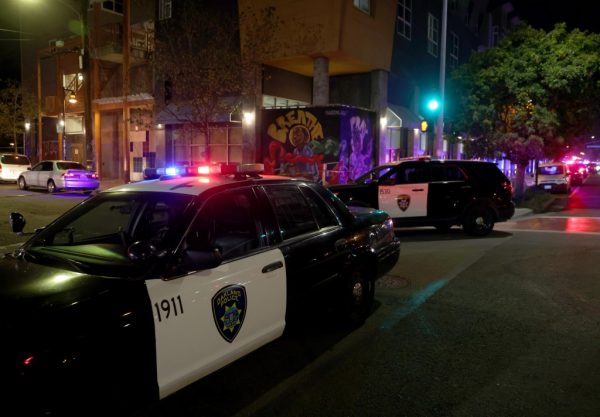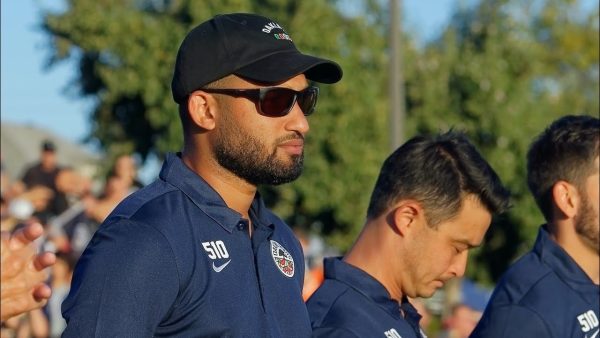Student government leaders meet with students
Members of Cal State East Bay’s student government hosted a “Meet Your Senators” event outside the Old University Union on Feb. 23, at which students were given the opportunity to speak with student-elected senators and board members and ask them questions.
The event was coordinated by the senator of transfer students, Joshua Peckham, in partnership with the senator of business and economics, Jaiman Khaira and the senator of international students, Pavel Radostev. There was free finger food and a wheel to spin to win Pioneer gear.
“We invited the rest of the ASI senators to just get to know all of us,” said Radostev. “The students are here, we’re here, ready to meet everyone and hear some opinions.”
Other senators who came out include Ryan Finazzo, the senator at large, Maurisha Simpson-Shepard, senator of commuter students, and Joanna Giron, senator for the College of Science.
Nine student senators serve students
The Associated Students Incorporated senate is made up of nine senators: four academic and five non-academic. Academic senators represent the four colleges: science, business and economics, letters, arts and social sciences, and education and allied studies. These positions are elected by the student body in April. All senator terms run from Aug. 1 to May 30.
The other five non-academic senators are based on aspects of Pioneer life. This includes transfer students, international students, commuter students, diversity and the senator at large, which acts a catch-all for any student affairs. These positions are appointed through the Board of Directors.
Applicants go through a screening process in the university to check their eligibility and then once confirmed, they will be interviewed by the interview panel, which consists of vice president of University Affairs, ASI president, executive vice president, the chair of the board of directors and executive director. These positions are relatively new so they’re still growing and the senators implement what they feel is best in their roles.
Student government appoints senators to focus on specific concentrations. “We serve as a liaison between the students and the university administration,” said Hendrix Erhahon. “As ASI president, I can directly relate questions or issues that students have to the university president. I want everyone’s voice to be heard.”
A day in the life for student senators
A typical day for student government starts with checking emails.
“I know I’m gonna get hit with at least 30 unread emails each morning,” said Louie Ramos, vice president of University Affairs. “I have my coffee and prepare myself, it just comes with the job. It’s nice to get a range of opinions and see what I can do to help them.”
But emails are just the first portion of communication for the senators. Their primary bylaw is to represent students concerns in matters pertaining to their college. Their job is to listen to student concerns and report back to the Board of Directors. They aid in investigating matters when needed.
These matters range in aspects all throughout the college. One of the biggest concerns is food options, whether it be healthier food choices or expanding the options now. But the most substantial is anything related to education. This includes classroom accessibility, textbook costs and giving students the equipment to succeed.
“It’s been eye-opening to hear the needs of the students,” Joanna Giron, senator for the college of science, said. “Whether it’s related to the building, the program or what they want to see as far as workshops.”
Recently, in the fall quarter there were complaints of poor water quality in the science building. The senators brought this up to President Morishita, and he brought in facilities to look into the issue and reprimand the situation.
All senators hold office hours throughout the week at different times to give students a chance to voice their concerns about the different departments and relate to someone on campus about any ideas or changes. It can be good or bad, but each senator has a time where their door is open to listen and go forward to represent the students’e needs. Senators spend a lot of their time tabling for their college. This means being a person to speak in support of the department they’re apart of.
Student senators collaborate to organize events, like bringing in professionals from different fields to speak with students. Maurisha Simpson-Shepard, senator of commuter students, works closely with the transportation department to put on events such as “Commuter Day,” coming up in May. This is a day where ASI honors all the students who commute to school with food, raffles and prizes.
“Even though I’m graduating in June, I want to carry out an event targeted for international students,” Radostev said. “I want to do something specifically for them because there are 1,500 international students out of 15,000 in the school; that’s 10 percent. We’re one of the most diverse schools, so by having this new position, senator of international students, we can address their needs much better.”
Senators also have a vote in weekly senate meetings. Many members of the student government like Ramos started out as committee members, or paid students who attend the meetings and give their input about legislative affairs.
In November, they found out that tuition could increase by 5 percent, or at least $270. The decision for the tuition increase will happen in March. When the increase was publicized, students were asking the student government for clarifications, what ASI was doing about it and anything for them to help with the movement to stop it. “Hopefully the tuition increase doesn’t pass, but if it does, come the month of May we will be organizing phone banking to the governor’s office for a revise of the budget,” said Erhahon.
Elections for academic senators happen in April. Applications for the non-academic senators will be accepted after elections close. With the semester conversion happening in fall 2018, the ASI structure is changing. For this election, students will not only be voting for their fellow Pioneers, but also for the new referendum of structure for how ASI government works. New senator positions will also be coming, including senator of undergraduates and possibly, senator of graduates.
“We have the potential to be way bigger than we are right now, it just takes students to get involved,” said Ramos. “Whether it’s protests or calling administration and seeing what’s going on, we can give that raw experience coming through this institution. We do have some type of authority.”
Recently, the focus has been on broader, more long-term goals. By refining the scholarship policy with new verbiage and having some extra funds in the fall, they launched the ASI scholarship which was obsolete for the past five years. There was a lack of funding in years prior and the scholarship wasn’t being expanded to as many students as they would have liked. This time, they publicized it through ASI emails and social media to encourage all students to apply. It’s a thousand dollar scholarship that was awarded to ten different students in the fall and winter based on need and merit. They are relaunching it for spring and fall 2017, this time for twenty students.


